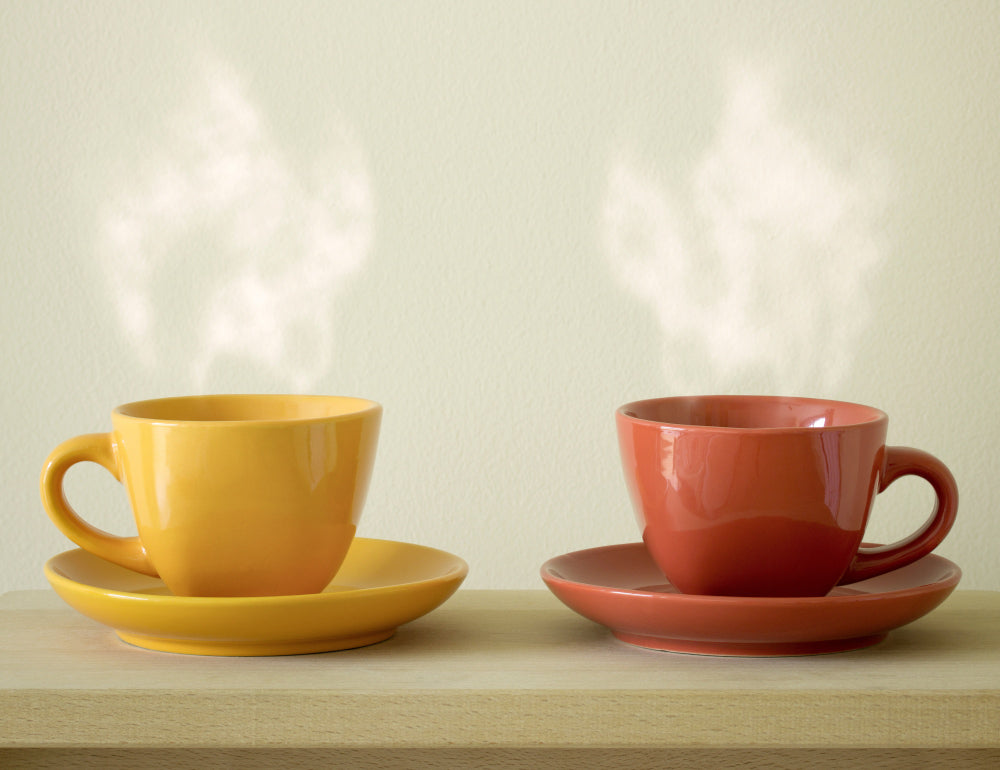
Coffee vs. Tea: Which One Should You Choose?
Christos PanayiotouΜερίδιο
The age-old debate between coffee and tea enthusiasts is more than just a matter of personal preference; it encompasses a variety of health benefits, flavors, and cultural significance. Both beverages are enjoyed worldwide and have their own unique qualities that can enhance your daily routine. In this post, we’ll explore the differences and similarities between coffee and tea, helping you make an informed choice about which beverage might be best for you.
1. Caffeine Content: The Energy Factor
One of the most significant differences between coffee and tea is their caffeine content.- Coffee: An 8-ounce cup of brewed coffee typically contains about 95 mg of caffeine, making it a stronger stimulant compared to tea. This higher caffeine content can provide a quick energy boost, making coffee a popular choice for those needing to kickstart their day or enhance athletic performance.
- Tea: In contrast, an 8-ounce cup of black tea contains approximately 47 mg of caffeine. Green tea has even less, around 29 mg per cup. While tea offers a gentler caffeine boost, the presence of L-theanine—an amino acid found in tea—can promote relaxation without drowsiness, creating a balanced effect that many find appealing.
2. Health Benefits: A Closer Look
Both coffee and tea are rich in antioxidants and have been linked to various health benefits:-
Coffee:
- May reduce the risk of type 2 diabetes by improving insulin sensitivity.
- Linked to lower risks of certain chronic diseases, including liver disease and Parkinson's disease.
- Contains polyphenols that can help combat inflammation and oxidative stress.
-
Tea:
- Rich in catechins (especially green tea), which have been shown to improve heart health and support weight loss.
- Regular consumption may reduce the risk of depression and anxiety due to its calming effects.
- Offers protective benefits against dental cavities and kidney stones.
3. Flavor Profiles: A Matter of Taste
The flavor experience differs significantly between coffee and tea:- Coffee: Known for its bold, robust flavors, coffee can vary greatly depending on the bean type, roast level, and brewing method. From rich espressos to smooth lattes, coffee offers a wide range of taste experiences that can be enhanced with milk, cream, or flavored syrups.
- Tea: Tea presents a diverse spectrum of flavors—from delicate floral notes in white tea to earthy tones in black tea. The steeping time and temperature can also affect the flavor profile significantly. Tea can be enjoyed plain or with additions like lemon or honey for added sweetness.
4. Preparation Methods: Rituals and Routines
The preparation methods for both beverages can also influence your choice:- Coffee: Brewing methods include espresso machines, French presses, pour-over systems, and drip coffee makers. Each method extracts different flavor profiles and strengths, allowing for customization based on personal preference.
- Tea: Tea preparation involves steeping leaves in hot water for varying lengths of time depending on the type of tea. The art of steeping can be meditative, with many enthusiasts enjoying the ritual as much as the drink itself.
5. Potential Downsides
While both beverages offer health benefits, there are some considerations to keep in mind:- Coffee: Excessive consumption can lead to anxiety, insomnia, digestive issues, and dependence due to its high caffeine content. It may also contribute to increased heart rate or blood pressure in sensitive individuals.
- Tea: While generally considered safe, excessive consumption of certain teas (especially herbal varieties) may lead to unwanted side effects due to other compounds present in the leaves.
